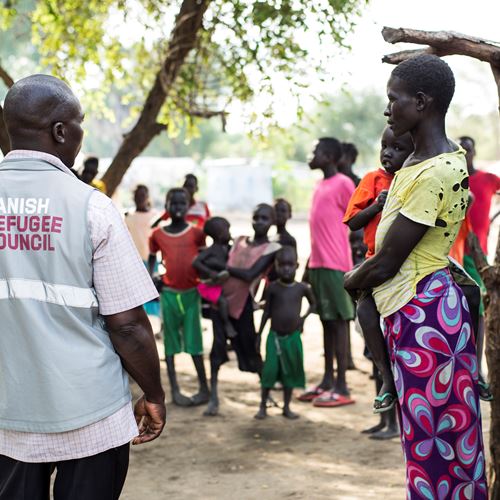
South Sudan
DRC has been present in South Sudan since 2005, implementing projects in Upper Nile, Unity, Jonglei, Western Bahr el Ghazal and Eastern Equatoria states. South Sudan represents the largest refugee crisis in Africa, with over 2.3 million refugees and asylum seekers hosted in Uganda, Sudan, Ethiopia, Kenya and, to a lesser extent, DR Congo. South Sudan faces high levels of internal displacement, with 2.2 million internally displaced persons as of 30 September 2022.

Displacement trends
Source: | DRC Foresight
Displacement Trends
Definitions
EDPs: Refugees under UNHCR’s mandate
IDPs: Internally displaced persons
Asylum seekers: People whose claims for refugee status have not yet been determined
Stateless: People not considered as nationals by any State
HST: People living in Host Communities
OIP: Others in need of International Protection
OOC: Others of Concern
Forecast
DRC forecasts are based on a machine learning tool that has been developed to predict forced displacement (IDPs, refugees and asylum seekers) at the national level 1-3 years into the future.
Why we are there
Protection is at the core of DRC’s work. In the midst of crisis, it is important for an organization like DRC to support people who have lost almost everything while protecting themselves from violence, heavy rains, droughts, human rights abuses, exploitation and neglect.
DRC is a leader in Camp Coordination & Camp Management – coordinating partner agencies to ensure that everyone has the basic services required for a safe and dignified life.
DRC works with communities to address the root causes of displacement, such as climate change and conflict.
What we do
DRC’s mobile response teams work in the hardest-to-reach areas to provide lifesaving support and emergency supplies, with a focus on the most vulnerable.
DRC works to make communities safer by promoting peace and clearing landmines and unexploded ordinances.
Part of this work includes helping people identify risks and engaging community members and leaders to implement conflict-sensitive governance.
DRC is the social cohesion lead for the Complementary Action for Resilience Building (CARB) consortium.
Working in collaboration with


World Food Programme

European Civil Protection and Humanitarian Aid Operations

UNHCR

Ministry of Foreign Affairs Netherlands

Danish Ministry of Foreign Affairs

Global Affairs Canada

Contact

James
Curtis
Executive Director East Africa & Great Lakes
Alana
Mascoll
Country Director





